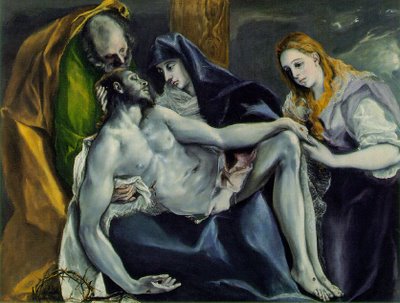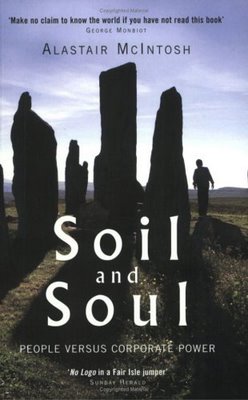


I got caught on the other side of the Strood yesterday (the Strood being the causeway connecting Mersea to the mainland). As this was by no means unanticipated, I had taken my camera, parked in the driveway of a parishioner, and walked down to take some photos. In the middle of possibly the busiest Sunday I have ever had, this was a pleasant break.
Monthly Archives: September 2006
TBTM20060911
TBTM20060910
TBTM20060909

‘Kissing the picture of one’s beloved. That is obviously not based on the belief that it will have some specific effect on the object which the picture represents. It aims at satisfaction and achieves it. Or rather, it aims at nothing at all; we just behave this way and then we feel satisfied.’
(Wittgenstein. Please do not get the impression that I kiss pictures of Ollie :o)
TBTM20060908
“What makes a subject hard to understand – if it’s something significant and important – is not that before you can understand it you need to be specially trained in abstruse matters, but the contrast between understanding the subject and what most people want to see. Because of this the very things which are most obvious may become th hardest of all to understand. What has to be overcome is a difficulty having to do with the will, rather than with the intellect.” (Wittgenstein, 1931)
Bonus piccie from yesterday afternoon. I like it as it gives a sense of the immensity of the mudflats at low tide.
Ben Myers on ‘Let us be human’
“we are human, but we are not yet truly human”
Go read. This is what the next sequence of the Learning Church is about.
Relevancy skewered
An inconclusive train of thought

The Church of England is the established church within England. It was conceived as the church catholic within this territory. That is, it maintained the key catholic elements of orthodox christian faith; and, in the other sense of catholic, it offered itself to all comers. The unstated assumption behind this was that everyone who lived in the land was Christian.
When other religious perspectives were legitimised (especially RC in the 19th Century) something essential to the catholic identity of the church of England was irretrievably compromised. It became a sect. That sectarian ethos underlies the worldwide Anglican Communion, and is why splits are inevitable.
The Anglican identity is known by its liturgy. The effective abandonment of the BCP was also an effective abandonment of that identity.
The Anglican identity also rests upon the ‘tripod’ of Scripture, Tradition and Reason. That is a seam of theological insight which cannot be lost, and which is, in principle, something on which a sectarian community might be grounded.
By sect I don’t mean to be provocative. I mean a part of the body.
The Church of England cannot pay its way. It cannot, even now, finance a priest in every church. That situation will become financially much worse in the coming decades (not least because of the financial implications of Peak Oil). Consequently, the church will persist only in those communities with active lay participation and leadership (we won’t stop having priests; we will stop having full time stipendiary priests).
Looking at the statistics for church growth, and considering the various theologies of lay involvement, this implies that the membership of the Church of England, in short order, will become overwhelmingly evangelical. This process has already been in train for a while, but I can’t see any reason for it to stop.
Fortunately, the evangelical tradition (not just within the CofE) shows a healthy willingness to appropriate the historic faith; to move beyond the Reformation categories. That is a source of hope.
Ironically, the legal status of the CofE will act as a buffer absorbing many of the shocks that are coming to it, like the split with the conservative elements worldwide. (Further thought – how long before Akinola becomes a cardinal within Anglican Rite Catholicism?)
In what way is it an authentic acting out of the gospel to offer hatching, matching and despatching services to whomever might ask for it? Not to argue against sacrificial service, but a plea that the sacrament is not degraded to a charade.
The cultural shape within which the Church of England grew up and established itself socially, as opposed to legally, has vanished. The ‘George Herbert model’ – if it ever was appropriate – is clearly an impossible dream now. The role of the clergy is reducing down to more key essentials: sacramental ministry; teaching; spiritual direction. General chats accompanied by tea and cake – however much ministry might be enabled through them – are simply no longer tenable as a central pillar of priestly life.
What’s the point of the Church of England? Not – nota bene – ‘what’s the point of Christianity’ (which is something that is becoming ever more bright and lucid to me) but, why should there be an established church? How does being established enable us to be faithful?
It is as if our ears are filled with an echo. As there is still a lot of noise, we imagine that there is still a great stirring of the spirit corresponding to the noise. But it’s just an echo. The echo of a door being slammed as the vitality exits stage left.
I was once told a story, which I’m sure is apocryphal, but it’s a good story anyhow.
A new incumbent came to a parish, and took part in his first eucharist. As the procession was returning to the vestry, he noticed that the servers in the procession all ducked their heads at a point half way down the back aisle. After the service he asked why this was done. Nobody in the procession knew, it was simply ‘what we’ve always done’. So the new incumbent investigated, and, although he wasn’t sure, he came to a conclusion. Some thirty years before, there had been work done on the back aisle, which had involved a strut of scaffolding stretched across the back aisle. The procession had needed to duck to get past the iron bar – and the habit had persisted, even when the scaffolding had been taken down.
I’m not sure the Church of England should really be structured around scaffolding.
More to the point, I’m not sure how much longer I’m prepared to keep on ducking.
Holiness, Speech and Silence (Nicholas Lash)
Another very lucid book from Nicholas Lash. Didn’t teach me a whole lot that I wasn’t aware of, but it would be an excellent introduction to contemporary philosophical theology for someone trapped within the usual misconceptions which disfigure secular perspectives on the faith. I used my favourite quotation from the book here.
Soil and Soul (Alastair MacIntosh)
 Very good, extremely interesting, and just the thing to remotivate my own small motionings towards ecological activism on an island. Lots of strong positives to the book, including that it took theology seriously, the one real negative was that the theological angle just wasn’t very good (very liberal and new agey) – example (p219): “Traditional Christian theology saw its function as having been to appease once and for all God’s wrath at human wickedness…”
Very good, extremely interesting, and just the thing to remotivate my own small motionings towards ecological activism on an island. Lots of strong positives to the book, including that it took theology seriously, the one real negative was that the theological angle just wasn’t very good (very liberal and new agey) – example (p219): “Traditional Christian theology saw its function as having been to appease once and for all God’s wrath at human wickedness…”
Aaaggghhhh!!!! He really needs to read James Alison (or Hauerwas, or Lash….)
And yet: “The deepest activism is always spiritual activism.” (p240)
Oh yes.




